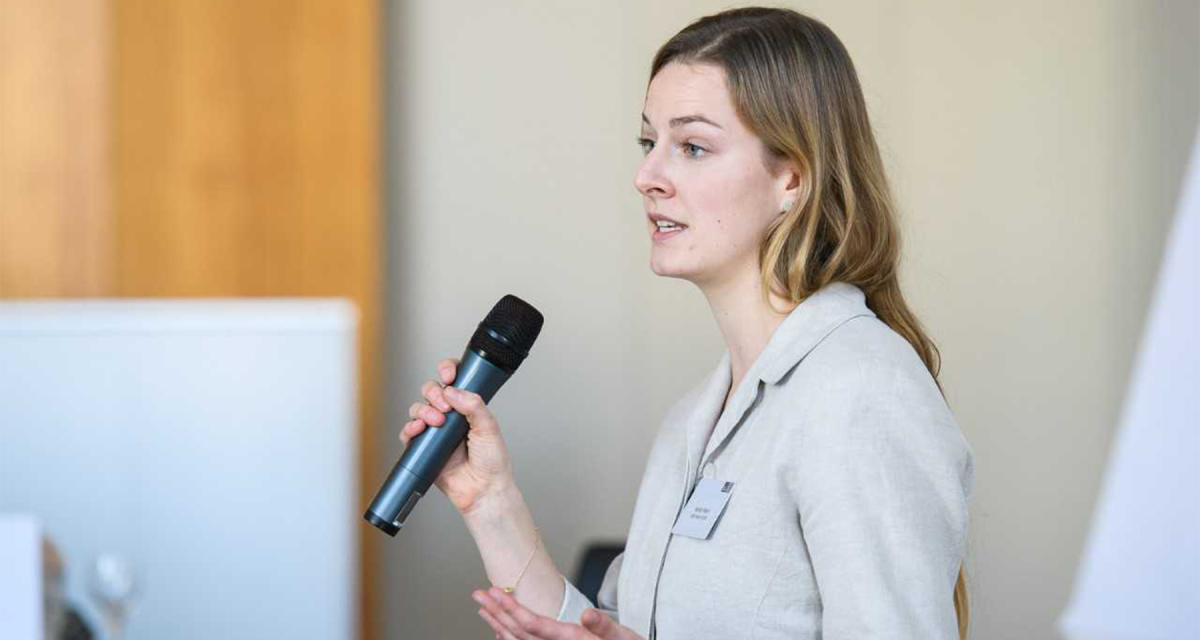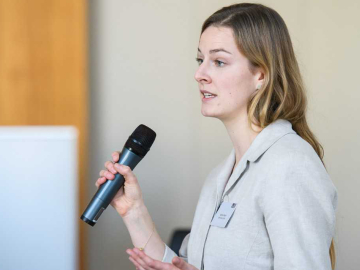Change is now

Each year in June, ESMT Berlin invites experts from business, government, academia, and civil society to share their perspectives and experiences as it relates to the hottest topics of the modern business world. This ESMT Annual Forum draws more than 300 guests and is an event highlight of the Berlin campus.
Because of the coronavirus crisis, the Berlin campus was temporarily shuttered and the annual forum had to be canceled. Nevertheless, we reached out to our speakers, inviting them to approach the forum’s theme – “The New Work Illusion?” – through the lens of the pandemic.
In my role as a youth representative of the BUND, a German environmental NGO, my demand for nature protection has been countered with recurring phrases:
“Change takes time.”
“It’s the customer’s choice, not ours.”
“We need our weekly flights; physical business meetings can’t be replaced.”
The current crisis proves the opposite. We can turn the entire world upside-down – altering the way we live, consume, and work – within days.
The coronavirus crisis is just one of the crises of our times. Climate change and the rapid loss of biodiversity show that we are damaging our environment irreversibly. Natural disasters and violent human conflicts are the consequences of business choices that exploit the planet. Yet corporate activities are threatened by our harm to the natural world – the health of our communities, our environment, and our economies are intertwined.
What we were able to do is not what we should do. Decision-makers should inspect our old truths and former habits carefully. After the current crisis, some companies will want to get back to the “past normal.” We could choose instead a “future normal” – to be bold enough to rethink the status quo and to imagine a working world that is in line with ecosystems.
Rather than perceiving environmental protection efforts as a constraint, businesses should see the business opportunity. Changing value chains towards environmental wellbeing could lead to operational stability, and developing sustainable business models could be a chance to innovate and gain first-mover advantages. There’s no better time to invest in carbon neutrality, to build up recycling streams, to create habitats for flora and fauna.
Humanity finds itself at a crossroads: We can either take drastic action to transform our business world or we can watch the health of our planet decline year by year. Greta Thunberg has proven that one person can motivate millions. But we can’t wait for Greta to transform millions of supply chains. Politicians and business leaders must address the threat of environmental catastrophes with the same rigor and solidarity as seen under COVID-19. Corporate responsibility can be brought to the next level to solve the problems of our time.
Myriam Rapior, ESMT Master’s in Management 2018 - 2020, is the youth representative on the federal executive board of BUND, Bund für Umwelt und Naturschutz Deutschland.
